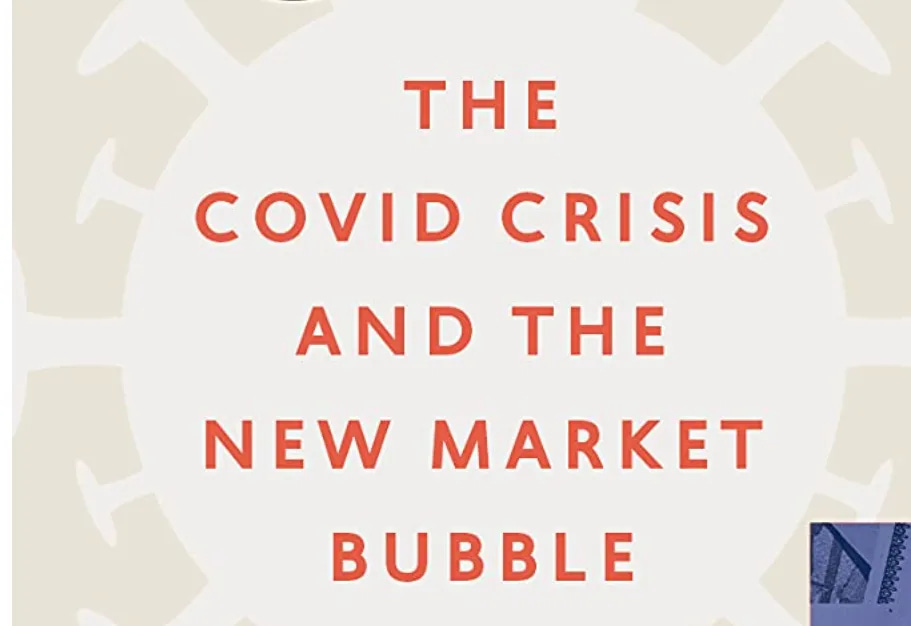In 2017, then Chairman of the Federal Reserve Board Janet “Inflation Is Transitory” Yellen hinted there would not be another financial crisis “in our lifetimes.”
Maybe she got the idea from Morgan Stanley boss James Gorman, who in 2013 put the chance of a crisis “in our lifetime” as “close to zero” as he could imagine. Well, imagination, as the song says, is crazy. “Your whole perspective gets hazy.”
These two experts, as Alex J Pollock and Howard B Adler tell us in Surprised Again! The Covid Crisis and the New Market Bubble, are far from alone. Economic experts, they confirm, have a collective accuracy that would embarrass a busload of blind golfers. Not one expert, they remind us, saw the Great Depression coming. And none foresaw the Calamitous Coronadoom Panic of 2020. Which lasted until now.
And will last how much longer?
What fascinates is that being wrong in no way dents the awesome armor of assurance experts don. Whatever they do when given power, they do boldly, and without doubt. Whether this lack of humility is caused by amnesia or hubris can be debated. What can’t are the astonishing effects of the economic “solutions” foisted upon us by a string of experts during the panic, each trying to correct the ill effects of the other “solutions”.
Pollock and Adler take us through it all. From the lockdowns to the Fed printing money with glee to the resultant market swings to the rush and retreat from cryptocurrencies to the run in the housing market to crushing municipal debt and its ill effects on pension funds to student loans and all back again to the banks and the Fed.
This book serves as excellent introduction to modern economics and monetary policy, presenting it cleaner than in any textbook, and with a complete absence of pedantry. Theory is backed by observation in a wonderful Appendix (my favorite part) where the reader can write down a handful of indices at the time of reading, and compare them with history and with the authors’ predictions.
Primarily, this is a book in which we re-learn the ancient truth that much of what we have learned will be forgotten in the next crisis. One perennially lost lesson, even though it’s been verified by history time and again, is that panic kills. In the literal and figurative sense. This is not a book about public health, though. Pollock and Adler accept medical “solutions” as a given, and only question economic “solutions”.
Buy my new book and learn to argue against the regime: Everything You Believe Is Wrong.





Excellent book review in Law and Liberty.
Warm congratulations!
Fits in neatly with Riggs' War on Expertocracy, since as know-it-alls, economists rank with gods and Generals.
You mention that no mention is made of medicine. No need, since books are now pouring forth about the mother of all know-it-all train wrecks, medical expertise in the China Virus Pandemic. Tony "Getchya Boosta" Fauci is surely a god in the Pantheon of Fools Who Would Be Experts. For Best Actor in the "Seldom Right, Never in Doubt" category, I would nominate Fauci and Robert McNamara, though surely Tiny Tony will get the Expertocracy Oscar. He was much more deadly than Body Count Bob. Da Fauch stands alone in body counts. And he not only mis, dis and malinformed victims of the China Virus bioweapon, he funded R&D on it. McNamara did not raise the money for his dumb war or invent misleading the public about it. LBJ did that. (But, to his credit, he never said he was an expert, and LBJ was so plagued with doubt.)
Finally an educated reader's observation about Law and Liberty. Riggs wrote his fine review for its only section which remains intellectualy esteemable, its book reviews. L&L, in my opinion, declined greatly in recent years, a decline I note that coincided with what seems to me to have been its editors' decisions to join the Orange Man Bad mob and also to stop publishing reader comments and criticisms of its increasingly unimpressive articles and essays. (Ironically, the comments and criticisms of its stuff, then, were often more thoughtful, defensible, well-written and readable than its stuff.)
L&L was once a cherished publication, and I hope it can regain its footing. From the Weekly Standard, National Review and such, conservativism has endured too much, which is enough.
Briggs, not riggs.
Sorry again.
Unlike like my ex, Tyrannus Ex, I do apologize for my errors.
Explanation for my malapropism: DC area, where I have lived for 50 years, once had a dominant, locally-owned bank (remember those?) called Riggs Bank, which I used for 30 years.